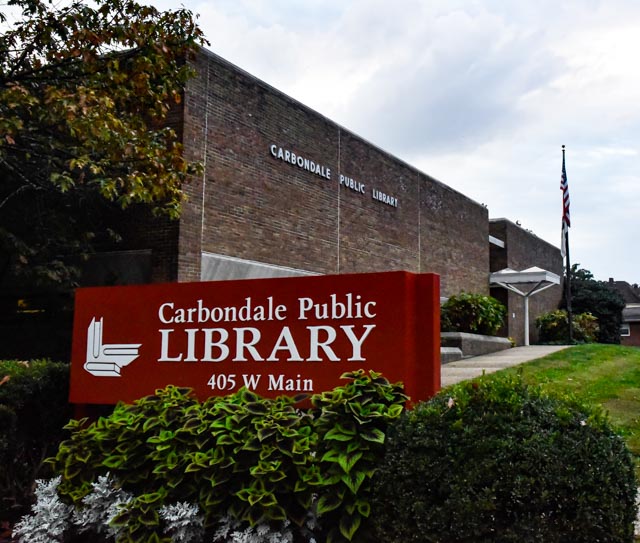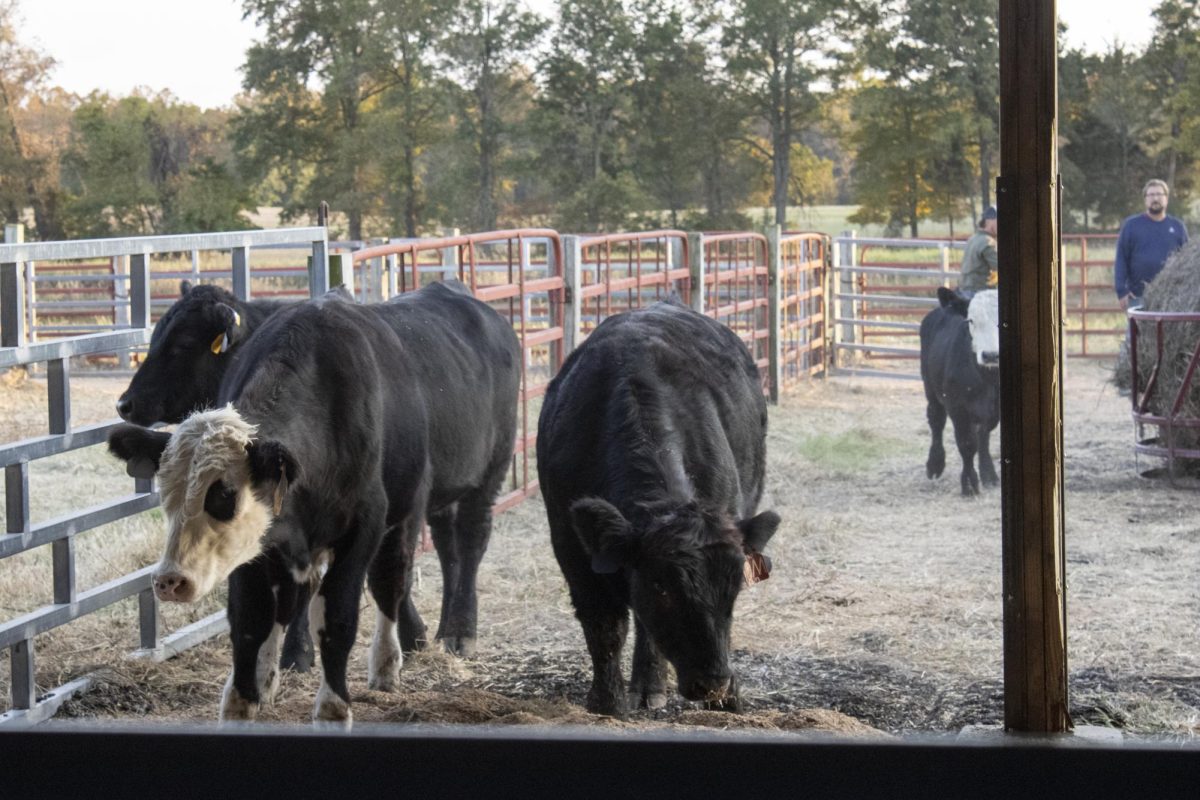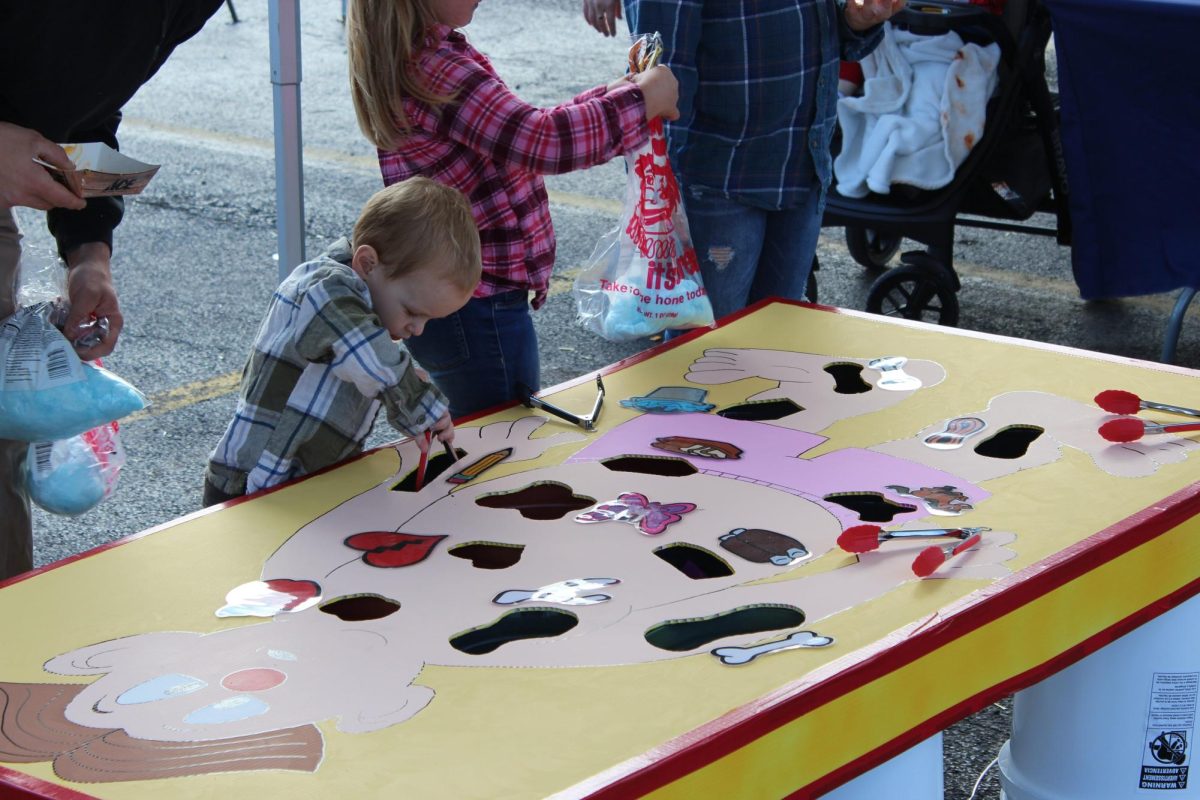‘Our Issues, My Body’
April 23, 2002
Factoid:Our Issues, My Body is from 7 to 9 p.m. Wednesday in the Student Center Video Lounge located on the fourth floor. For more information, call Carl Ervin at Student Development at 453-5714.
Nestled in Ingrid Smith’s photo album between the pages of friends, family and loved ones, lies a special picture bordered with dried flowers. The young woman smiles brightly, her name, Tiffany Marie Lott, is printed on a blue program. The black letters spell out her birthday, Aug. 2, 1981, and the day she died Sept. 14, 2001.
The 20-year-old woman was Smith’s best friend who died from diabetes after some of her major organs shut down.
Advertisement
The tragic event shook Smith, a junior in psychology from St. Louis, to the core. But her struggle has inspired her to create a workshop for students to learn about women and minority health issues called Our Issues, My Body from 7 to 9 p.m. Wednesday in the Student Center Video Lounge.
Her girl from the start
Smith could always see Lott’s beaming face smiling back at her from the adjacent seat on the Clayton District school bus. They lived in the same neighborhood, went to the same small middle and high school. Their relationship blossomed during the nine years of their friendship.
She was an outgoing person, very independent, Smith said. You can’t help but to get close with her.
Despite their tight bond, Clayton District Schools were spotted with cliques, and Smith and Lott were in two different groups of friends. But when Smith needed someone, Lott was there.
Before entering high school, Smith was eager to travel to Washington, D.C., with the Close-up program, which takes students to visit the political and city sites of the nation’s capital. She expressed her enthusiasm to her clique on the school bus, but they kept asking questions about how much the trip cost and what they would do there. Smith was discouraged, until she looked across the aisle to Lott.
I asked her if she wanted to go to Washington, D.C., and all she said was, Sure,’ Smith said. She didn’t care how much the trip was, she just wanted to go I knew then she was my girl.
Advertisement*
Smith and Lott’s friendship grew as they toured Washington, D.C., and worked together as camp counselors. After graduation, Smith lost ties with several of her friends from high school, but Lott refused to keep their bond severed.
Smith soon heard from her best friend and found out she had finished school early and was working toward her cosmetology degree in order to pay for college.
I tried to shake her off, but she just wasn’t budging, she said. She was so motivated, very independent at such a young age.
Visiting her friend when she can, Smith returned for Labor Day weekend in August and immediately called Lott when she was in St. Louis. Spending the day at Lott’s home she paid for at the young age of 20, Smith saw the same bubbly best friend she has known since their bus rides to middle school.
She called me a week after I left and yelled at me for not saying goodbye, Smith said. But we e-mailed jokes to each other a few times since then.
On Friday, Sept. 14, Smith received a call with a vastly different nature. The voice on the other end of the phone was hysterical, crying out, Tiffany died, Tiffany died. As Smith tried to calm down her high school friend, Brittany, she finally said, It’s Tiffany Lott.
She asked me if I was OK, all I could say was, I’m fine, I’m fine,’ Smith said. I just shutdown.
Her initial reaction was to drive home to St. Louis, but her college friends convinced her to stay and get her schoolwork taken care of first. But it did not matter to Smith and she stayed home from classes, disappearing into the shadows of her mourning.
Everything came crashing down on Smith at once the devastation of the Sept. 11 terrorist attacks and her best friend dying of a controllable disease. Her grades started to drop. She couldn’t talk to Lott’s parents, her family or even her own mother about the death and her suffering.
After staying away from home for a few months, Smith finally returned to her stomping grounds and instinctively picked up the phone to call Lott. But she would quickly hang up the receiver, knowing her friend is not going to reply with a friendly hello.
I wish she would have been hit by a plane or died when the Twin Towers fell I would have somebody to blame, she said. But who do I blame for her death, her? The doctors?
Smith wanted to find a solution, so she researched women’s and minority health issues. She found several diseases kill minorities, including AIDS, STDs and diabetes. The results shocked her.
These are things that could happen to me, she said. People need to know about these because they are preventable.
Smith decided to compile a handout of the statistics she collected as well as her struggle with Lott’s death. Trying to target her information on Lott’s experience as a young black woman, she approached Women’s Studies first with her material.
Mike Hernandez, an anthropology professor, said he was enthused to have Smith present her experience and research in front of his class.
Smith said at first, she prepared her material as if she were teaching the class about this information, but soon found out they lost interest.
I said, OK, let’s just talk straight up,’ she said. They became more interested and involved in my lecture.
This response led Smith to prepare a more detailed outline and present her plan to several other University departments, including Women’s Services, Wellness Center, WIDB and Student Development.
Carl Ervin, coordinator of Student Development, said he was impressed by Smith’s story and presentation of her workshop. The theme of her plan is one Student Development likes to present to the student body.
This is something that seems preventable, controllable and students do not have to die from it, Ervin said. It represents the concern of a lot of students and the community.
The workshop will incorporate interactive games, discussion breaks, speakers and an open forum for questions into informal setting. Pamela Williams, a member of the Delta Sigma Theta sorority, will speak about STDs and Jane Maxwell, from Women’s Services, will talk about depression and low self-esteem.
Becky Gordon, graduate assistant for the Wellness Center, will introduce the series of interactive lectures, talking about major killers for different races of women. She said she hopes the participants in the workshop will learn about their body, but more about how they can save it.
We want them to be able to protect themselves and that can start here, Gordon said. We don’t stress enough and get enough information out there about these diseases, this way, they hopefully won’t have to deal with it in the future.
Smith said the title of her workshop is about prevention, but it is also about the effects of someone with a curable disease on other people. She said that is why she called it Our Issues, My Body.
Over 300 people were at Lott’s funeral, it was so packed people were standing, Smith said. Her body had an effect on everybody around her.
Smith is stressed and tired from the extensive work she has done to tell her friend’s story, but she said it is a happy tired. She is pleased to know her name will not be forgotten or taken in vain.
When she looks at the young black woman in her photo album, she sees a person she can only talk to in spirit. She sees a young, black woman who died too soon. She sees a symbol for others to learn from, especially herself.
Reporter Samantha Edmondson can be reached at [email protected]
Advertisement








